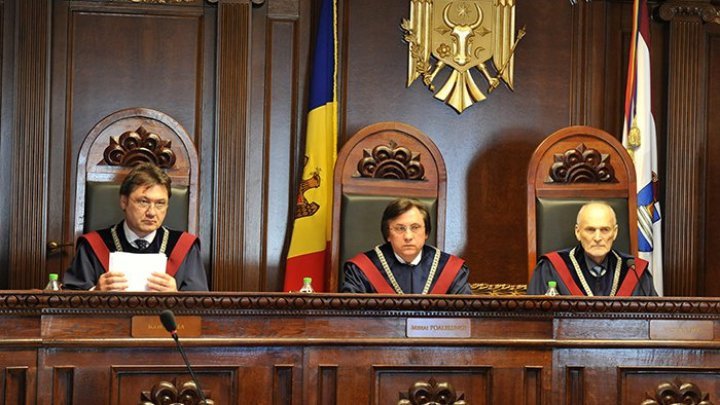Constitutional Court declared unconstitutional a lot of allowed stipulations for preventive arrest
 foto: moldpress
foto: moldpress
The Constitutional Court (CCM) declared unconstitutional a lot of allowed stipulations for preventive arrest in situations that violated, including the presumption of innocence.
Following the examination of the complaint filed by several Magistrates and deputies of the Liberal Party, the Court noted that any person is considered innocent until the final judgment of a conviction has been ruled out.
What this principle requires is the idea that, on the one side, the arrest of a person does not imply that at the end of the trial, it will be condemned, but that any solution, including that of his or her payment, is possible. On the other side, when applying a precautionary measure, the judge should not question the guilty person's guilty that he has committed a crime but only if there is sufficient evidence or information to suspect that that person has committed that act, as well as to ascertain whether there is a relevant and sufficient reason justifying the application of a preventive measure (risk of absconding from the prosecution or the trial of the case, the risk of prejudice to justice, the risk of committing other crimes, the risk of public disorder) said.
Magistrates have found that "the preventive arrest on the ground that the person has not recognized his guilt does not fall within any of the grounds for deprivation of liberty under points (a) to (f) of Article 5 § 1 of the European Convention."
At the same time, the contested provisions compel the person to admit his guilt in committing the imputed act in order not to apply his preventive measure to the arrest, which violates the right to freedom and security.
The CCM decision is final and enters into force on the date of its adoption. It will be published in the Official Monitor of the Republic of Moldova.
Following the examination of the complaint filed by several Magistrates and deputies of the Liberal Party, the Court noted that any person is considered innocent until the final judgment of a conviction has been ruled out.
What this principle requires is the idea that, on the one side, the arrest of a person does not imply that at the end of the trial, it will be condemned, but that any solution, including that of his or her payment, is possible. On the other side, when applying a precautionary measure, the judge should not question the guilty person's guilty that he has committed a crime but only if there is sufficient evidence or information to suspect that that person has committed that act, as well as to ascertain whether there is a relevant and sufficient reason justifying the application of a preventive measure (risk of absconding from the prosecution or the trial of the case, the risk of prejudice to justice, the risk of committing other crimes, the risk of public disorder) said.
Magistrates have found that "the preventive arrest on the ground that the person has not recognized his guilt does not fall within any of the grounds for deprivation of liberty under points (a) to (f) of Article 5 § 1 of the European Convention."
At the same time, the contested provisions compel the person to admit his guilt in committing the imputed act in order not to apply his preventive measure to the arrest, which violates the right to freedom and security.
The CCM decision is final and enters into force on the date of its adoption. It will be published in the Official Monitor of the Republic of Moldova.